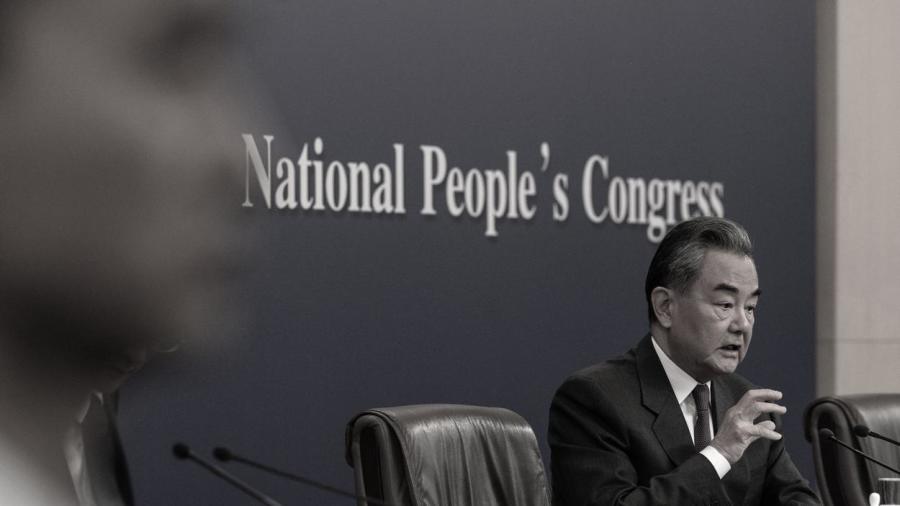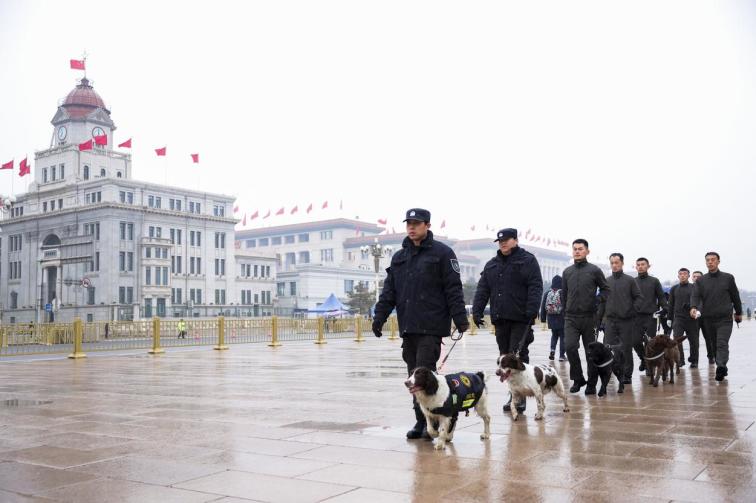Chinese Foreign Minister Wang Yi (Photo by Kevin Frayer/Getty Images)
Liu Jianchao, head of the CCP’s International Liaison Department, was rumored to have gone missing in August, failing to appear even at major events such as the Beijing military parade. The authorities have remained completely silent. Recently, independent commentator Du Zheng revealed that Liu’s downfall was linked to leaks, involvement with a woman, and his power struggle with current Foreign Minister Wang Yi.
After completing an overseas visit at the end of July, Liu stopped making public appearances, sparking widespread speculation. The Wall Street Journal and Reuters, citing informed sources, reported that Liu is under investigation and his home has been raided.
On September 13, Du Zheng published an article in Taiwan’s Up Media stating that after Liu disappeared, many speculated on the reasons for his downfall.
According to Du, a retired official hinted that Liu’s case was tied to leaks, one of the reasons being related to a “woman.” No further details were provided.
In 2015, Liu was criticized for praising a foreign official as a “beautiful woman” in a diplomatic setting. On March 16, 2015, while serving as Assistant Minister of Foreign Affairs, Liu visited South Korea and openly referred to Na Kyung-won, then-chair of the National Assembly’s Foreign Affairs Committee, as a “beautiful woman,” prompting some lawmakers to accuse him of breaching diplomatic etiquette.
Du revealed that violations of diplomatic discipline and even host-country laws are commonplace among Chinese diplomats, both in Beijing and in overseas embassies. Sexual misconduct has been especially rampant, with China’s consulate in South Korea a particular hot spot, causing serious negative repercussions internationally.
According to South Korea’s JTBC, on February 23, 2016, three Chinese diplomats in Seoul groped women in a restaurant in Myeong-dong, sparking public outrage over their lewd conduct.
In fact, Liu is not the only Chinese diplomat whose downfall is tied to sex scandals. In July 2023, former foreign minister Qin Gang was dismissed after becoming romantically involved with a TV host during an interview, resulting in an illegitimate child. Qin was later implicated because the woman was suspected of espionage.
On December 28, 2005, Foreign Ministry spokesperson Shen Guofang was suddenly removed, then demoted the next day to chief editor of a publishing house under the ministry, also due to a sex scandal. Rumors swirled about his involvement with a female translator, a Taiwanese spy, and female reporters.
In January 2015, Zhang Kunsheng, Assistant Minister of Foreign Affairs and head of the Protocol Department, fell due to bribery and sexual misconduct.
Exiled Chinese scholar Yuan Hongbing, writing for Kan Zhongguo, revealed that Liu Jianchao had long been considered a strong candidate to succeed as foreign minister. But Wang Yi’s faction sought to eliminate rivals by exposing Liu’s corruption and debauchery. To protect himself, Liu allegedly attempted to strike a deal with a major power, offering up classified CCP documents in exchange for a potential escape route if he were purged.
However, one of Liu’s female secretaries was reportedly an agent in Xi Jinping’s surveillance network of officials. As a result, Liu was arrested and placed under house detention before he could act.
Sources say that after his arrest, Liu refused to confess, claiming that Wang Yi’s faction had framed him. He even accused his secretary of having an illicit affair with Wang Yi.
Du also revealed that Chinese diplomats often double as intelligence operatives. Since China opened its doors, it has heavily recruited spies, with the state security system selecting college students for short-term training that bound them for life to state security.
John J. Tkacik Jr., a retired U.S. diplomat, wrote in Liberty Times that during his service at the U.S. Liaison Office in Beijing, the U.S. Embassy, and consulates across China, he worked with young graduates assigned by the Beijing Diplomatic Service Bureau and its provincial branches. He observed that these individuals always arrived early, left late, and eagerly tried to learn as much as possible about U.S. office activities.
After graduating from the University of International Relations, Qin Gang was assigned to the Beijing Diplomatic Service Bureau, then to UPI’s Beijing bureau. After four years of strict training in foreign media, Qin officially joined the Foreign Ministry as a diplomat. Tkacik argued that Qin’s journalism background allowed him to conduct intelligence work under “diplomatic cover.”
Similarly, Liu Jianchao, who was sent to the UK for a year right after graduation before entering the Foreign Ministry, could not shake off the shadow of espionage. Du concluded that Liu, who eventually became head of the CCP’s International Liaison Department, was in fact an “old spy.”











News magazine bootstrap themes!
I like this themes, fast loading and look profesional
Thank you Carlos!
You're welcome!
Please support me with give positive rating!
Yes Sure!